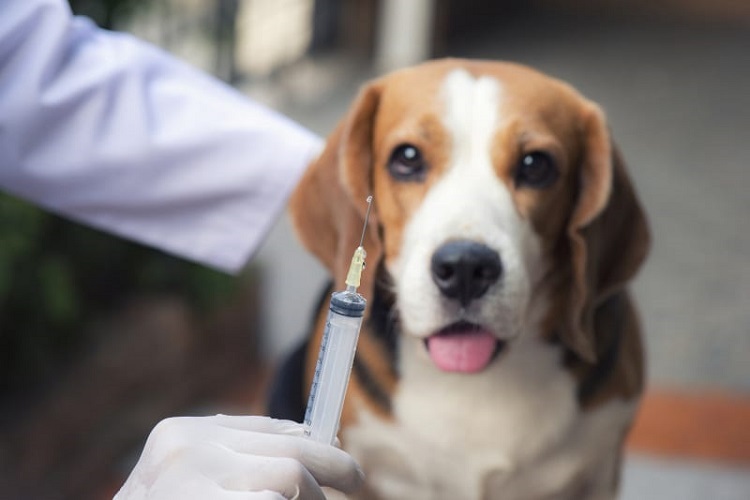Dogs may be vaccinated against kennel cough, but the vaccine is not always 100% effective. Dogs vaccinated may still develop kennel cough, especially if they are exposed to the virus or bacteria that causes the infection. Kennel cough can be treated with antibiotics and other medications, and most dogs will recover within a few weeks.
Most of us think that our dogs will not contract kennel cough, as they are regularly vaccinated against the disease. However, there are circumstances where vaccination does not prevent infection, and your dog can get sick. Although it is not considered to be dangerous for your pet, it can cause illness in humans if they come into contact with infected dogs.
If you’re thinking about adopting a new dog, you may want to consider getting it vaccinated against kennel cough. Dogs are vaccinated for kennel cough, but vaccination does not prevent them from catching the disease.
Table of Contents
Kennel cough effect on dogs
Kennel cough is a highly contagious respiratory infection that affects dogs. The disease is caused by various viruses and bacteria, including Bordetella bronchiseptica, parainfluenza virus, and adenovirus. Dogs who are exposed to the virus or bacteria that causes kennel cough are at risk of developing the infection. Kennel cough can be treated with antibiotics and other medications, and most dogs will recover within a few weeks.
Dogs who have been vaccinated may still develop kennel cough
Dogs vaccinated may still develop kennel cough, especially if they are exposed to the virus or bacteria that causes the infection. Kennel cough is an infection caused by a virus. If your dog is vaccinated, it is doubtful that it will contract the disease. However, if your dog has not been vaccinated, it is a chance to contract the disease.
What are the symptoms of kennel cough?
The symptoms of kennel cough are high fever, coughing, sneezing, runny nose, and a thick white or yellowish discharge from the nose. Kennel cough is caused by a virus called Bordetella bronchiseptica. This virus causes inflammation in the lungs, which results in the coughing and sneezing. The disease spreads through infected dogs and can be passed on to other dogs through bites, scratches, or contact with contaminated objects. Kicking the dog out of the house after getting a vaccine is not enough.
t is possible to get kennel cough even after getting vaccinated. Kennel cough is caused by a virus and can be passed on to other dogs and humans. It can be passed on through saliva, urine, and feces of infected dogs. If your dog has been vaccinated against kennel cough, there is still a chance of getting it.
Is the Bordetella Vaccine Necessary?
Kennel cough is an infection caused by the Bordetella pertussis bacteria. It affects dogs and can be transmitted to humans, but it is not very common. It is recommended that dogs get vaccinated against this disease, especially if they are kept in close contact with other dogs. This can prevent the spread of the disease and help keep humans safe from this infection.
Is the kennel cough vaccine is 100% effective
There are a number of reasons why dogs can get kennel cough even after vaccination. Some of the reasons are:
Vaccination is not 100% effective. The vaccine is only effective for dogs that have not been exposed to the disease. Vaccination does not always protect your dog from getting the disease. Your dog may still get the disease if he or she has been exposed to it before getting vaccinated.
How kennel cough vaccine works
The vaccine against kennel cough is produced in a way that the body produces antibodies to fight the disease. In this way, the body of the dog will create its own antibodies to fight the disease. This is why vaccination for kennel cough is essential. When a dog is vaccinated, it will produce its own antibodies against the disease. Therefore, if a dog has not been vaccinated, it cannot produce its antibodies against the disease.


